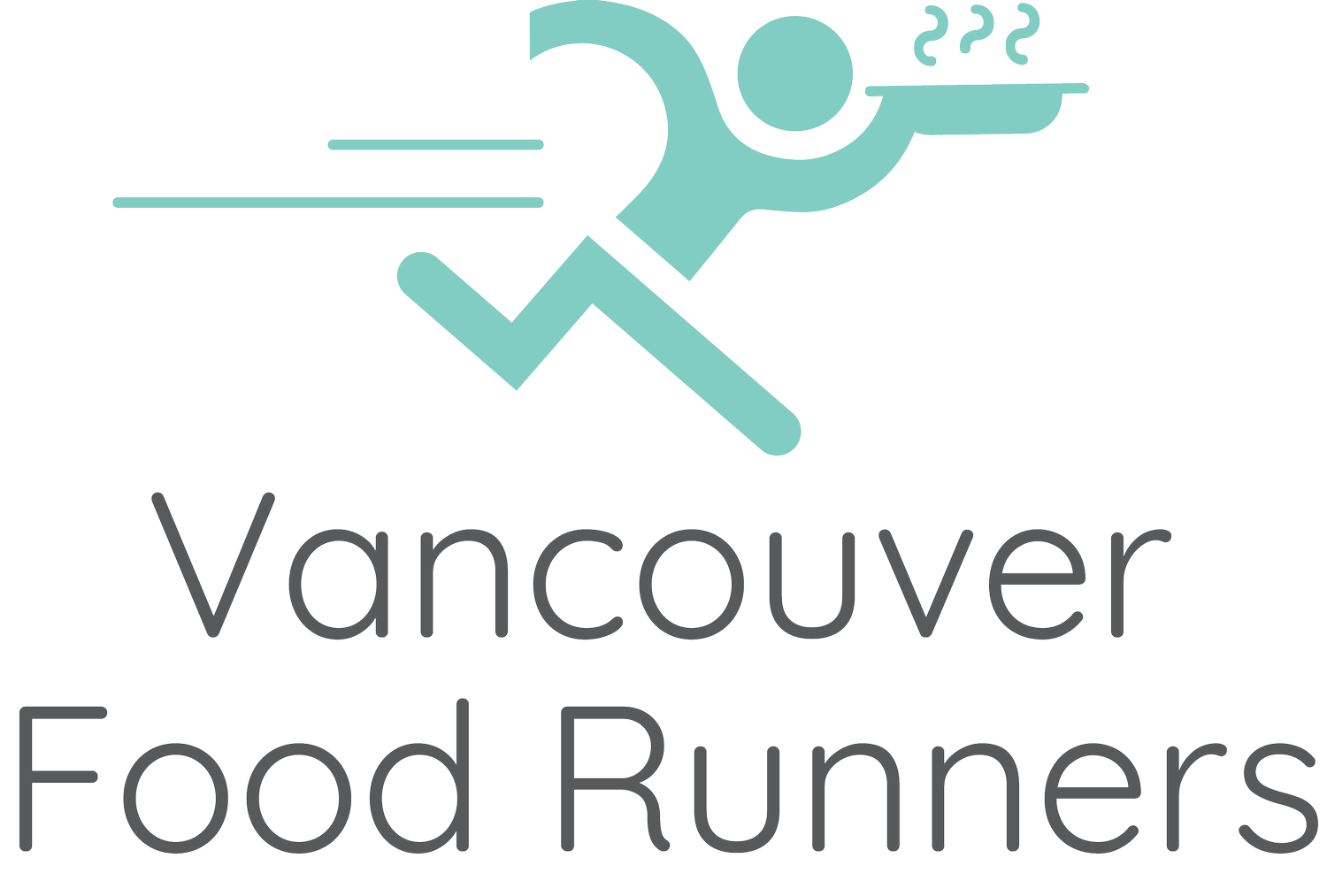Chef TJ Conwi
VFR: Chef TJ, tell us about your professional career and your journey to cooking hundreds of meals for nonprofits across Vancouver each week.
Chef TJ Conwi: The COVID-19 pandemic was a turning point for me. I’ve spent most of my career working in private clubs, hotels, or consulting—the pandemic made me more aware of food insecurity in Vancouver and waste in our food system. I saw the negative impact the pandemic was having on families, and I started cooking lunch for kids who couldn’t access meal programs due to school closures. It grew from there—my team and I cook 1,500 meals each week for six different charities using surplus food donations that would have otherwise gone to the landfill. So far, we’ve rescued more than 10+ tonnes of food.
VFR: Tell us about the team at Ono Vancouver! VFR volunteers get to meet these wonderful individuals throughout the week when they drop off food donations and pick up meals for the nonprofits.
TJ: I’ve been lucky to work with chefs who were part of my career in hotels, and others I’ve met more recently while trying to help fight food insecurity. They are all talented chefs who can take the weekly “black box” of ingredients and turn them in restaurant-quality meals. There are too many people to list, but a special shout out to Chef Sean McDonald who has been helping make this happen since day one.
VFR: You’re a true food hero in Vancouver, especially since the start of the pandemic. Please share about the meal program you operate in partnership with Vancouver Food Runners and some of the other projects you have going on.
TJ: Our partnership with Vancouver Food Runners allows us to keep going and do what we do. Thanks to VFR volunteers, we get deliveries of produce and other surplus food items every week. We then turn them into healthy, nutritious meals—what we do best—and then volunteers deliver the meals to community partners.
Every week, it’s a creative challenge to turn food donations into meals, but that is the missing “ingredient” in the food waste chain (pun intended!). It’s not as helpful to drop off a box of mushrooms or carrots on a nonprofit’s door, but if we can bring them Thai coconut curry, full of surplus vegetables, they can serve it to their clients. This meal program helps nonprofits reduce the amount of money they’re spending on food, and because we’re cooking the meals, their staff can spend more time focused on supporting clients.
We always have projects on the go because we’re hustling to fund our operations. For example, we’re launching a meal prep service called ReRoot Kitchen with Hilary Angus (who is also a long-time VFR volunteer) that we hope will provide some funding for this meal program.
VFR: You’re working with the City’s Circular Food Innovation Lab. Please share about this project and its aim.
TJ: At its core, the City’s Circular Food Innovation Lab will create new supports and bring different sectors to the table to strategize ways to reduce food waste. I’m involved in the peer-to-peer network, and I see the potential to broaden our reach and impact, connecting people across the industry (hotels, nonprofits, food manufacturing) through this common goal. We will be able to divert even more food waste through this project and VFR will be an essential part of this work.
VFR: You’re so connected to the food landscape in Vancouver. In general, what are some trends you see coming out of the pandemic in the food industry?
TJ: As much as everyone is excited about Michelin stars coming to Vancouver, I’m seeing more and more small business owners tap into their passion and cook from their hearts, bringing in their cultural influences. I’m excited to see more regional ethnic cuisine and other food entrepreneurs cooking what they love without boundaries. I highly recommend checking out Hanai Family Table, Kula Kitchen, Leavenly Goods, Khoe Vietnamese, Raiz, Vansuya, Sriracha Revolver, The Dumpling King, and other entrepreneurs at Coho Commissary.
They are the most giving groups of people that regularly gave back to the community during the pandemic.
VFR: One of our big goals at VFR is to normalize the donation of surplus food. How do you think we can make this happen? What are some of the barriers to food donation, and how do you think we can overcome them?
TJ: We need to reassure people that it’s easy to donate and make a difference, with VFR and Ono Vancouver leading the way. Businesses and organizations are also protected by law through the B.C. Food Donor Encouragement Act. It’s critical for the environment and their bottom line, as costs related to food disposal go down, if you donate your viable surplus. (Plus, it’s good karma!)
VFR: La Tablée des Chefs has been a big financial supporter of the nonprofit meal program, but their funding support is wrapping up in August. How can we help you keep this meal program going to support those in our community experiencing food insecurity?
TJ: We have access to kitchen space, we have access to surplus food, and we have VFR’s network of volunteer drivers to move food to the people who need it; but what we don’t have is steady labour to keep our operations going. We’ve started a GoFundMe campaign to ask for support—$4600 per month covers our basic operations/labour cost—but we could help more people and provide even more nutritious meals if our funding grows. Thanks in advance for spreading the word!
Support Chef TJ & his team HERE.
Be the first to read our E-newsletter
Subscribe to our bi-weekly newsletter that arrives to your email inbox every other Saturday!

